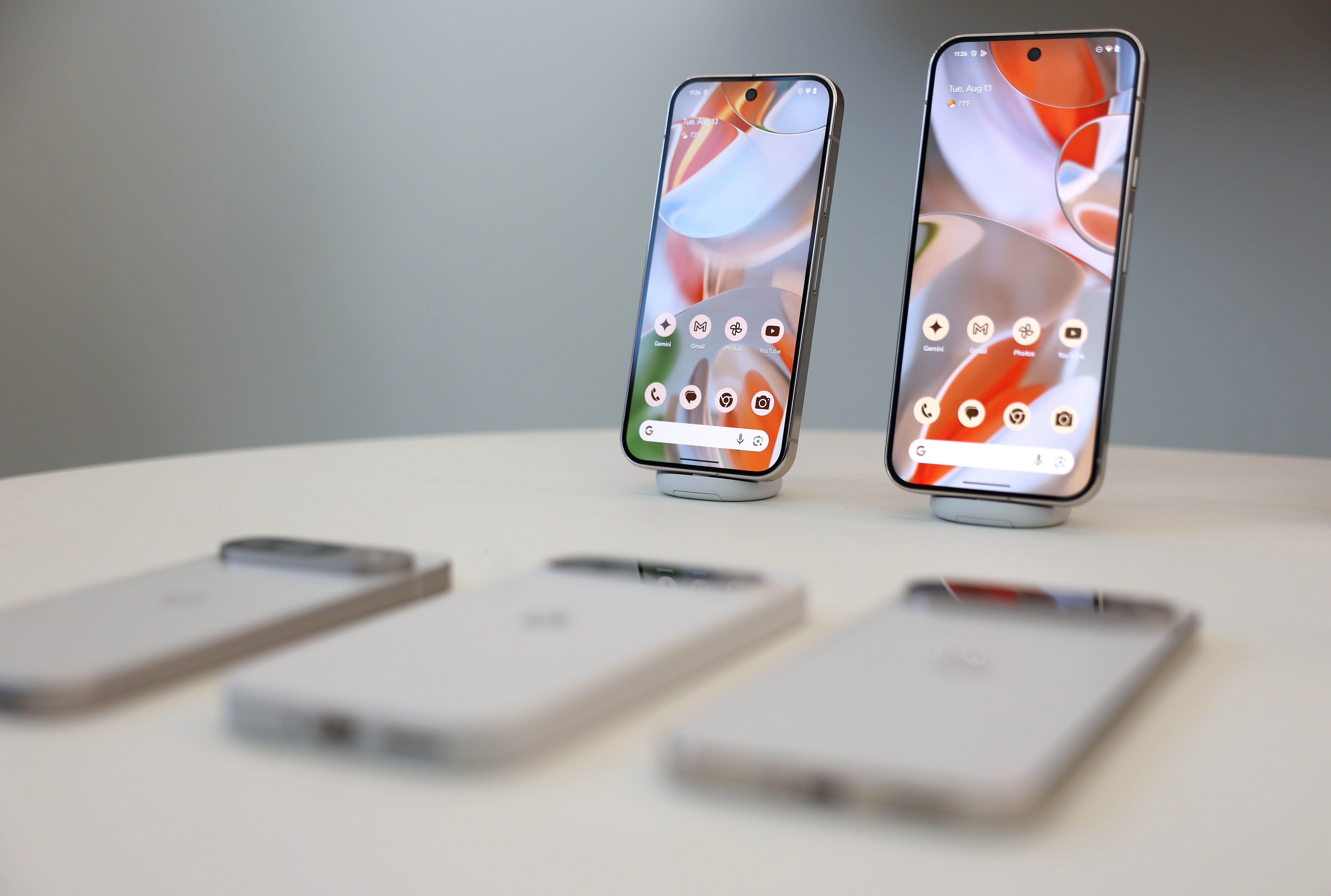Google releases new Pixel phones and says it is in the ‘Gemini era’
Line-up includes AI-focused new features that aim to make artificial intelligence useful

Google has revealed a host of new smartphones – powered by so much artificial intelligence that the company says it is in its “Gemini era”.
The new array of Pixel phones bring new hardware design and changes, but Google focused heavily on the artificial intelligence features that are inside of them. AI tools are now finally “getting real”, the company promised, noting that the tech industry has spoken heavily about the technology but given few compelling reasons or ways to use it.
Those AI tools include the ability to search for information from a screenshot, or quickly speak to a “live” version of Google’s Gemini chatbot to get information that might previously have required a search.
“There have been so many promises, so many coming-soons, and not enough real-world helpfulness when it comes to AI, which is why today we’re getting real,” said Rick Osterloh, Google‘s senior vice president of devices and services. “We’re fully in the Gemini era,” he told engineers, executives, analysts and media attending the bigger-than-usual event at Alphabet’s Bay View campus in Mountain View, California.
The event bucked another tradition: the latest versions of its Pixel smartphones were announced in the summer rather than in autumn as Google had done with every iteration of the device since its launch in 2016.
“I’ve been to a lot of Google events and not only was this one of the most elaborate, but it was one of the most complete,” said Avi Greengart, lead analyst at Techsponential. He said Google demonstrated that it was at the forefront of AI.
The earlier timing of the event is Google’s latest bid to keep up with rivals in injecting AI features into its consumer-facing products and comes ahead of Apple’s planned launch of a new iPhone in September. In June, Apple announced that devices including its latest version of iPhones would get upgrades that include ‘Apple Intelligence’, a slew of generative AI-powered features within native applications, and an integration with ChatGPT, the chatbot developed by Microsoft-backed OpenAI.
Google employees showcased several live demos of new Gemini functions, such as a voice conversation feature, though an attempt to use Gemini to cross-reference a picture of a concert poster with the calendar app took three tries and two devices to run successfully.
Pixel 9, the base 6.3-inch display model, will retail at a starting price of $799, which is $100 more than the previous model. This and the 6.8-inch Pixel 9 Pro XL will begin shipping later in August, a company spokesperson said. The Pixel 9 Pro, which comes with added features like a better camera, and the foldable Pixel 9 Pro Fold will ship in September.
The new gadgets are available to preorder on Tuesday.
“The two things that (consumers are) looking at AI to do right now is organisation – and that’s across communications, across calendaring, basically manage my life better than I can – and then the other thing is content creation,” said IDC analyst Linn Huang. “I think Google nailed both.”
Google holds less than 1 per cent market share in global smartphone shipments as of the second quarter of 2024, according to IDC. It trails far behind Samsung’s market share of 18.9 per cent and Apple’s market share of 15.8 per cent, in part because Google has entered fewer markets and is focused on higher-end price segments.
In the United States, Google‘s 4.5 per cent share makes it the fourth-biggest smartphone maker.
The Pixel line has also enabled Google to show off advances and spur the developer ecosystem around its Android operating system, which is used by device manufacturers like Samsung. Android, globally, is installed on more than 80 per cent of smartphones. Android represents one of several frontlines where Google is battling competitors to embed AI in ways that consumers will use. In May, it debuted a swath of upgrades to core products like its search engine.
The company’s engineers redesigned the Pixel‘s exterior and included camera upgrades as well as Google‘s new Tensor G4 chip.
Google announced new versions of its smartwatch, the Pixel Watch 3, and Pixel Buds Pro 2 wireless earbuds on Tuesday as well.
Google also added a ‘Loss of Pulse’ feature to the new Pixel Watch. The feature uses algorithms to determine whether a user’s heart has stopped and can contact emergency services. The feature will be available in the United Kingdom and the European Union.
Also on Tuesday, Google and Peloton, the fitness company known for its stationary bike, announced a content partnership in which subscribers to Google‘s Fitbit Premium service would gain access to a library of Peloton’s training classes.
Additional reporting by agencies
Join our commenting forum
Join thought-provoking conversations, follow other Independent readers and see their replies
Comments
Bookmark popover
Removed from bookmarks